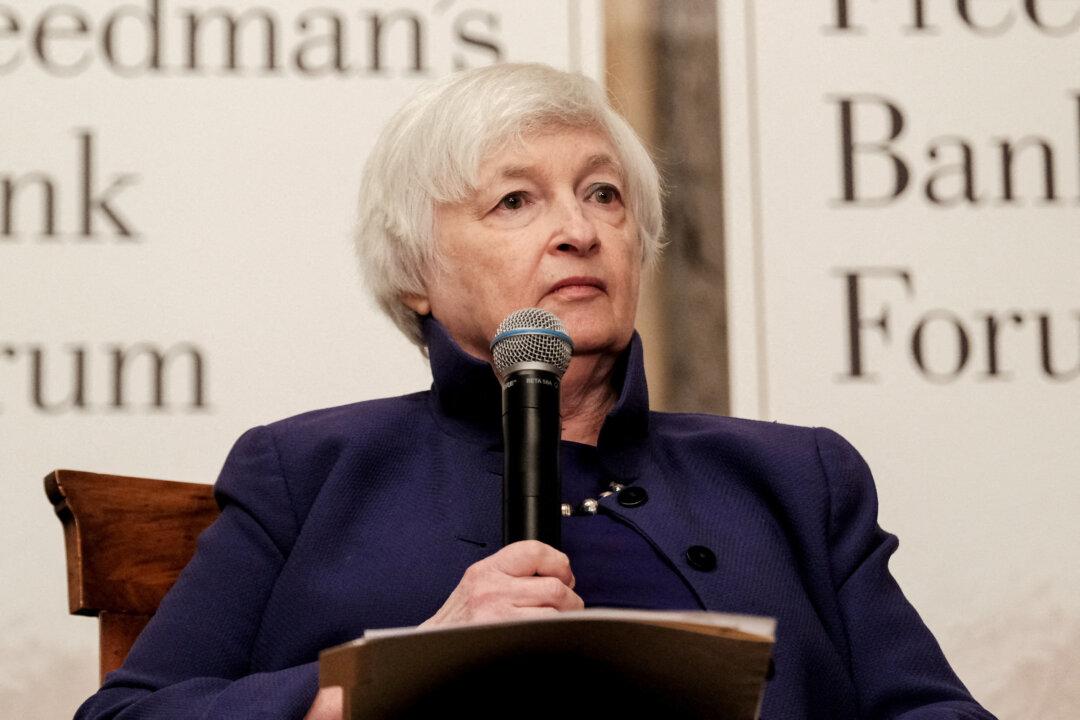HERNDON, Va.—U.S. Treasury Secretary Janet Yellen said on Friday that inflation was not becoming “embedded” in the U.S. economy and domestic investments in semiconductors and research would help increase U.S. productive capacity.
Yellen, speaking to reporters at a technology business incubator near Dulles International Airport, said she sees no signs of higher inflation expectations over the medium term being built into wages and prices.





